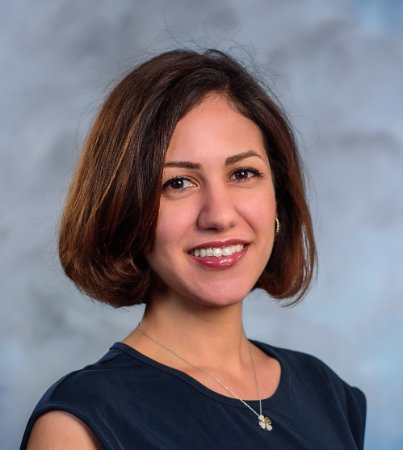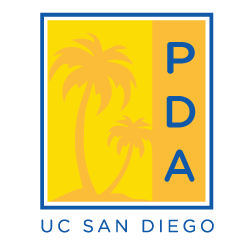
Nazila Daneshjou, Ph.D.
Medical Science Liasion | Agendia, Inc.

- Interview Overview
Interview Overview
Interviews and Editing by: Alexandra Bortnick
Interview: August 2017
Transition: March 2015
1. Please list your previous department at UC San Diego and provide a brief description of the research you conducted?
I was a postdoc at UC San Diego for about 2 months in Dr. Mark Ginsberg’s lab before I transitioned into industry. I’d like to claim the record for the shortest postdoc ever! I had made up my mind to leave academia in my last year of PhD, and MSL was something that I was very interested in pursuing. However, it is a very competitive market and it’s difficult to land an MSL position without any postdoc or industry experience. I decided to go for the industry experience, but while looking for a job, I accepted a postdoc position. As soon as I got an offer (a Medical Writing position at a medical communications agency) I quit my postdoc.
2. Please describe your current job profile?
As an MSL for a small molecular diagnostics company, I work as part of the Medical Affairs team. My main responsibility is to identify Key Opinion Leaders (KOLs) and develop peer-peer relationships with them. A big chunk of my time is also spent educating the physicians about our products and publications, discussing clinical studies and potential investigator-initiated studies, and attending conferences. It is a field-based position with about 60-70% travel time. I work from home when I am not on the road.
3. What made you decide to transition into your current position?
I learned about the MSL position during my fourth year of my PhD program. I knew that I wanted to continue working in a scientific/medical field but I didn’t want to do bench research. I needed something faster-paced and with the “human interaction” that is sometimes missing when working in the lab. As an MSL, I get to stay up to date with new research and development, talk to experts in the field on a daily basis, and I get a sense that I’m making an immediate impact on patients' lives, which is truly fulfilling. Not to mention I get to travel all over the US.
4. Apart from the research you conducted, do you feel like anything in particular has helped you acquire your current position?
The medical writing position was the key, especially since I didn’t have any research experience after my PhD training. I performed a lot of similar tasks as an MSL (minus the KOL interaction) in my medical writing role (i.e. writing abstracts and articles, developing presentations, and attending conferences, speaker trainings, sales trainings, and serving on advisory boards, etc). I emphasized these similarities during my interviews and that helped me land my first MSL job.
5. Please list some of the most striking similarities and differences between your postdoc and current position?
Well I can’t speak about postdoc experience but there are similarities with working in the lab. Mainly, the analytical thinking and problem solving, writing and editing abstracts and peer-reviewed articles, making posters and power point presentations, presenting scientific data. The most striking difference is how fast-pace everything is in industry, how quickly you would move to a different project (this was very true in my Medical Writing position) so you need to be flexible, adapt quickly, and communicate well.
6. Please describe your goals and ambitions for the next 5 years?
To continue growing professionally within the Medical Affairs field and develop my leadership skills.
7. What do you feel is the most important advice you can give to a current UCSD postdoc in order for them to obtain a position such as yours?
As I stated earlier, landing the first MSL job requires either therapeutic experience (through your postdoc) or industry experience. As a postdoc, make sure that the research that you are doing is relevant and applicable to clinical settings. During interviews, emphasize your soft skills (writing and presentation skills are keys to success as an MSL).
Network, utilize LinkedIn, and get involved with different organizations (i.e. Women in Bio, MSL society) and clubs (i.e. UC San Diego consulting club). These are all great opportunities to meet like-minded professionals, and learn about different career paths, potential openings, and internships.
